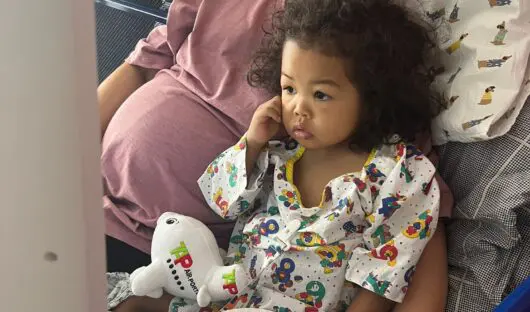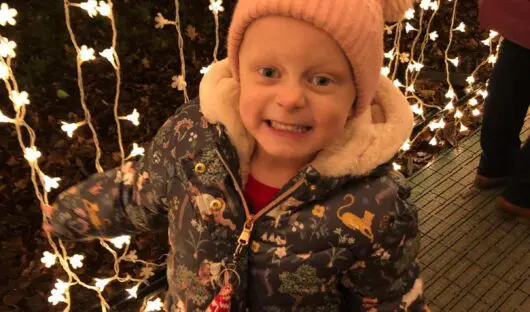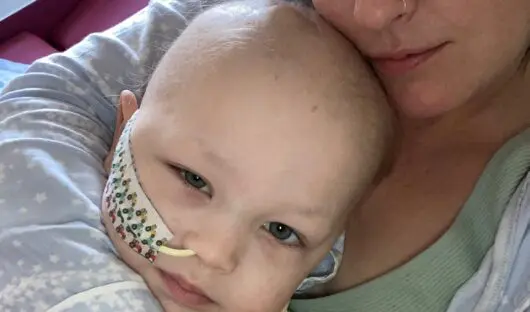Our Research Manager explains how important research is for #RunningOnEmpty
Young Lives vs Cancer has launched new research delving into the costs faced by young cancer patients and their families when travelling to and from treatment. This research forms the foundation of our #RunningOnEmpty campaign.
In this blog post, Rich Hughes, Policy Evidence and Research Manager at Young Lives vs Cancer, sheds light on the importance of this research and the steps involved in conducting it.

Meet Rich, our Policy Evidence and Research Manager
Why did we do research about travel?
There were a number of compelling reasons for our decision to focus on travel costs. Due to the specialist nature of cancer treatment for children and young people, it largely takes place in a small number of hospitals across the UK. While this is important in ensuring children and young people get the best possible care, it often means young cancer patients travel long distances to receive the treatment they vitally need.
This was also an area we had carried out previous research in, so we already knew the long distances created some of the biggest costs young cancer patients and their families face following a diagnosis. We also knew that the costs of travel have increased since we last conducted research into this subject. Whether that be increased fuel costs, or the prices now being paid to travel on public transport.
Through our day-to-day support we provide, we had also been continuing to hear about the difficulties young people and their families were facing accessing support to help with travel costs.
Who took part in research?
A total of 259 people participated in the research. Given our focus on costs, we specifically targeted those who had a role in contributing to paying towards those travel costs. This included young people aged between 18 and 26, and parents and caregivers of children and young people under 27.
To help understand how those living in different areas were affected by travel costs, we made sure that we engaged with people from right across the UK. Furthermore, to provide up-to-date findings, we also focused on those who had experienced cancer treatment in the last two years.
How did they share their experiences of travelling to cancer treatment?
To capture the diverse experiences of travelling to cancer treatment, we used two main approaches as part of this research, surveys and interviews. The survey was important to us in helping us understanding things we needed to know numbers for…. How far? How often? How much? While the interviews helped us delve deeper and better understand what the experience of travelling to and from treatment was like for young cancer patients and their families. Together they gave us a rich understanding of the costs, both financial and emotional toll, of travelling for treatment.
What did we focus on in the research?
In undertaking the research, we tried to understand a few things. Firstly, we wanted to get a clear picture of the types of journeys young cancer patients and their families made to and from treatment and how they were making these journeys. This included things like how far, how often and how long they were travelling for, as well as what forms of transport they were using to get to their hospitals and treatment centres.
Having understood the journeys being made, secondly our research tried to estimate how much they were costing young cancer patients and their families, both in the money they were having to pay out, as well as any lost income or earnings they were forced to incur. The research then sought to understand how these costs were affecting them and what they were able to do day-to-day.
Finally, in carrying out our research, we tried not only to understand the challenges facing young cancer patients and their families, but also understand what they think needs to be done to address these challenges. When we asked what they felt should be done to address the travel costs they were facing, their priority was the creation of a scheme that refunded their travel costs. That is why as part of the #RunningOnEmpty campaign, we are calling for the creation of Young Cancer Patient Travel Fund.
What’s next?
Over the next few months, we’ll be conducting more detailed research on travel costs. Through a series of focus groups with young cancer patients and their families, as well as front line support workers and other charities, we’ll be coming up with detailed proposals for how the Young Cancer Patient Travel Fund could operate. By doing this, we hope to create something that governments across the UK can easily adopt and put into action, so we can make sure that young cancer patients and their families can focus on getting through treatment, not how they can afford to get there.
How do I find out more about our research?
You can read the summary and full research reports here. If you are interested in hearing more about the research, you can also listen to me talk through the key findings below:
Rich shares more about the research undertaken for #RunningOnEmpty
Posted on Tuesday 1 August 2023


